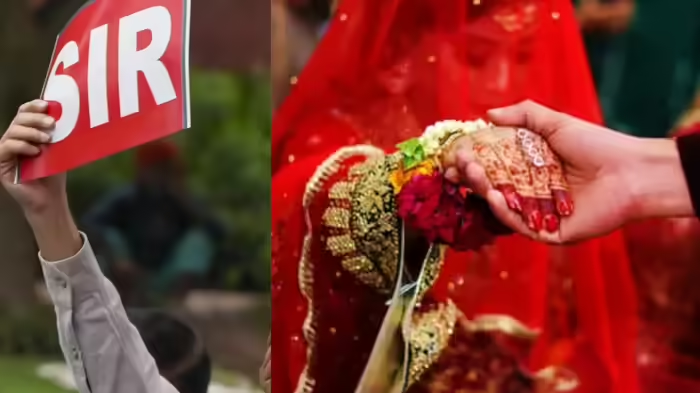
Kolkata, West Bengal: Following the commencement of the Special Intensive Revision (SIR) of voter lists in West Bengal, a notable trend has emerged in the state’s minority-dominated border districts. Many Muslim couples, who traditionally solemnize marriages under Islamic law, are now rushing to register their marriages under the Special Marriage Act, 1954, citing legal and administrative concerns.
According to official data, between November 2024 and October 2025, 1,130 Muslim couples in West Bengal applied for marriage registration, with over half of these applications (609) filed between July and October, coinciding with the SIR exercise in the neighboring state of Bihar.
Border Districts Lead the Surge
The highest number of applications came from North Dinajpur (199) and Malda (197), both bordering Bihar, followed by Murshidabad (185) and Cooch Behar (97), which are also adjacent to Bangladesh. Kolkata recorded the lowest number with only 24 applications, while districts like Jhargram (1) and Kalimpong (2) saw minimal filings.
Officials linked this surge to growing concerns over the SIR process, as couples sought legally recognized documentation to establish citizenship and secure official records.
Traditional Kazi Certificates vs. Special Marriage Act
Historically, rural Muslim marriages in Bengal are registered under the Bengal Muslim Marriage and Divorce Registration Act, 1876, with licenses granted to Musalman Marriage Registrars (MMRs)—usually Kazis. While Kazi-issued certificates are legally valid, they lack uniformity and the address verification process is unclear, causing many government and private institutions to refuse them as recognized marriage documents.
The Special Marriage Act certificates, on the other hand, are universally accepted across India, resolving issues related to documentation, legality, and citizenship proofs.
Why Registration is Now a Priority
A senior official noted that while the 1876 Act allowed easy registration, quick divorce, and remarriage, it granted Kazis excessive authority and had loopholes that could be exploited. The Special Marriage Act, however, is more stringent, allowing only one legally valid marriage at a time and providing robust legal protection.
This shift indicates that Muslim couples in Bengal are increasingly prioritizing formal registration to ensure legal recognition, prevent future disputes, and secure citizenship-related documentation, especially in the context of border areas and ongoing SIR exercises.
Discover more from SD NEWS agency
Subscribe to get the latest posts sent to your email.
